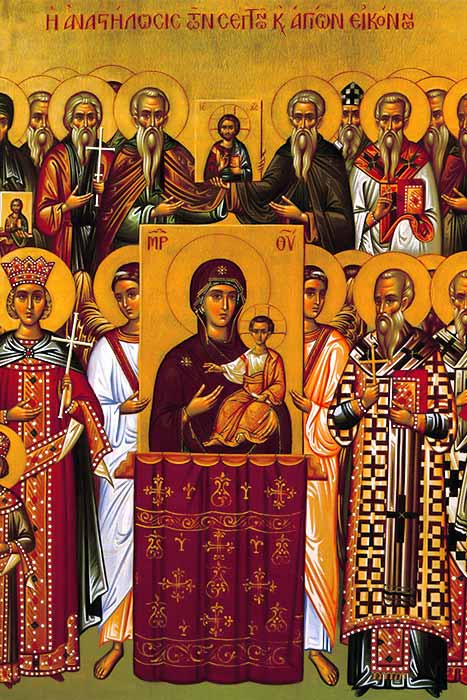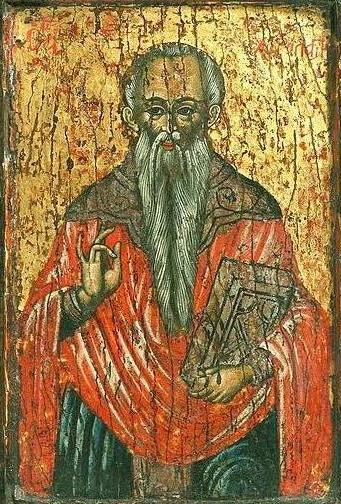For it is the God who said, “Let light shine out of darkness,” who has shone in our hearts to give the light of the knowledge of the glory of God in the face of Christ. But we have this treasure in earthen vessels, to show that the transcendent power belongs to God and not to us. We are afflicted in every way, but not crushed; perplexed, but not driven to despair; persecuted, but not forsaken; struck down, but not destroyed; always carrying in the body the death of Jesus, so that the life of Jesus may also be manifested in our bodies. For while we live we are always being given up to death for Jesus’ sake, so that the life of Jesus may be manifested in our mortal flesh. So death is at work in us, but life in you. Since we have the same spirit of faith as he had who wrote, “I believed, and so I spoke,” we too believe, and so we speak, knowing that he who raised the Lord Jesus will raise us also with Jesus and bring us with you into his presence. For it is all for your sake, so that as grace extends to more and more people it may increase thanksgiving, to the glory of God.
II Corinthians 4: 6-15 (Epistle from Feast of St. Efthymios)
On January 20, the Orthodox Church celebrates the feast of St. Efthymios. Saint Efthymios lived from 377-473. He was both in Armenia, the first son of very pious parents who had not been able to have children. He first became a monk and later a bishop. In the year 406, he came to Palestine and would become leader of many monks. Saint Efthymios was instrumental in many people converting to Christianity. He also fought against heretics like the Nestorians, Eutychians and Manicheaeans. He later was the spiritual father to St. Savvas the Sanctified (whom the church commemorates on December 5). He died peacefully at the age of 96 in the year 473.
On the feast of St. Efthymios, as we do on other feastday of saints who were known for forsaking their material lives for Christ, we read from St. Paul’s Second Letter to the Corinthians 4: 6-15. In this passage Saint Paul exhorts us to walk as Jesus did. We know that His power did not come “from earthen vessels” (II Corinthians 4:7) but from His relationship with His Father, a perfect union with God. We spend so much of our lives working for the material things which fade, fail and ultimately are left behind. Saint Paul reminds us that the real power and real freedom in life come from our relationship with Christ, not our possession of “earthen vessels.”
Christ’s choice to walk in unity with God did not mean that His life was easy, and our choice to do the same does not guarantee an easy life either. Jesus was afflicted in every way—He was denied, betrayed, spat upon, insulted, falsely accused, beaten and ultimately killed. Saint Paul followed in the same footsteps. So did many of the saints. And while we may not end up being killed for our faith, we can bet that if our faith is genuine (and if it is genuine it will be known) that we will suffer for it in some way. Saint Paul reassures us, however, that even when we are afflicted, we will not be crushed. Even if we are made to suffer for our faith, our faith will not be crushed. (4:8) We might be perplexed, but we will not be driven to despair. Even if we have doubts, we will not be driven to sadness. (4:8) We might be persecuted by others but we will not be forsaken by God. The faith may cost us jobs, friends, and other things. It may cause others to “forget” about us. But God will always remember us and what we believe about Him. (4:9) We may even be killed for our faith, or suffer catastrophic loss because we are Christians—we might lose a job, or reputation. In some countries a Christian may even lose his or her freedom. But the faith we hold cannot be destroyed. (4:9)
We are called to walk in the footsteps of Jesus—dying to the world and living in Him. If we have in our hearts and souls the sacrifice that Jesus made, as well as the willingness to make our own sacrifices for Him and for our neighbor, then we will also carry in us the glory Christ has in the Light of the Resurrection. We will also carry that Light within us. This is why Saint Paul reminds us of God’s word “Let light shine out of darkness.” (4:6)
Saint Paul tells us “for while we live we are always being given up to death for Jesus’ sake, so that the life of Jesus may be manifested in our mortal flesh.” (4:11) The Christian life is a constant challenge of dying to the world and living in Christ and for Christ. This exercise is not just a one-time proposition but happens throughout our lives. When we go to confession, as an example, we approach this sacrament because we reach a realization that we are not living for Christ but for the world. We identify areas in our lives where we need to “die” and then through repentance we “die” to those things and “live” in Christ, so that He is manifested in us.
When Christ died on the cross, He said to His Father, “Into Thy hands I commit My spirit!” (Luke 23:46) At the moment of His death, He died with confidence and faith. The result of this faith was the Resurrection. When we live out this verse, not only at the hour of our death but throughout the way we live our lives, we can feel confident as well, “that He Who raised the Lord Jesus will raise us also with Jesus and bring us into His presence.” (4:14)
We study the lives of the saints, like St. Paul and today St. Efthymios, as a reminder that they (and we like them) are to walk in the footsteps of Christ, being willing to have nothing material to gain everything spiritual. This is how we can have nothing but still have everything.
Sing, O desolate land that did not bear; be encouraged, you who have not been in labor. For a man, greatly beloved of the Spirit, has multiplied your children. He planted them in godliness, he reared them in self-control, and he raised them to perfection in virtue. At his intercession, O Christ our God, grant peace to our lives. (Apolytikion, St. Efthymios, Trans. by Fr. Seraphim Dedes)
Walk in the footsteps of Christ today! Put God first! Put others ahead of you! Let’s God’s word be manifest (be at work) in your life today!

